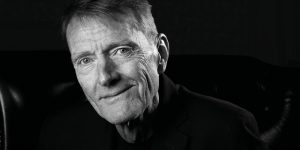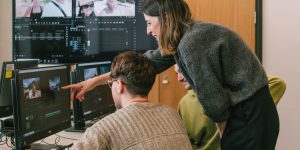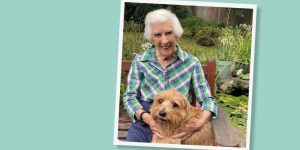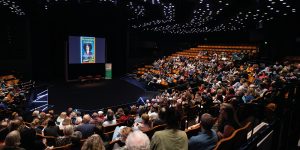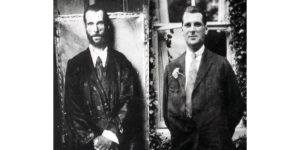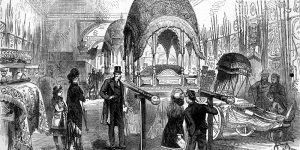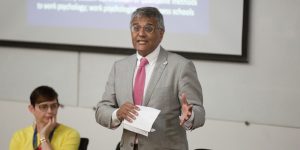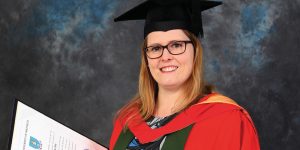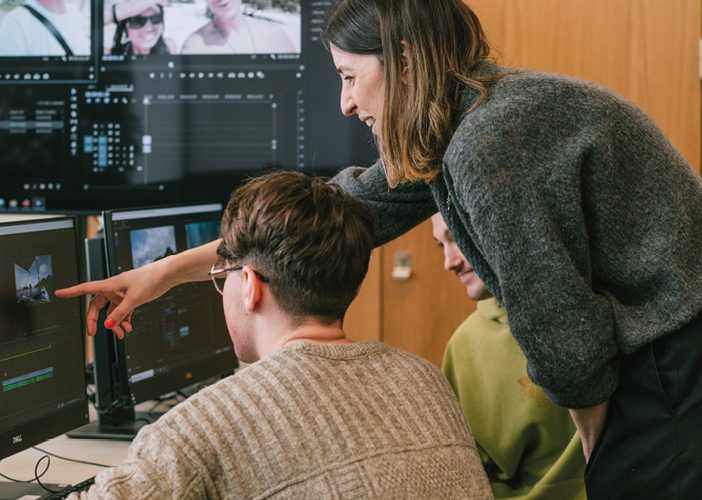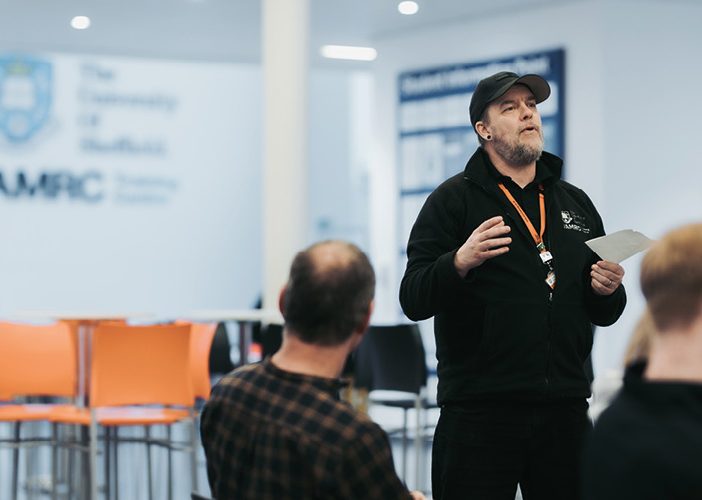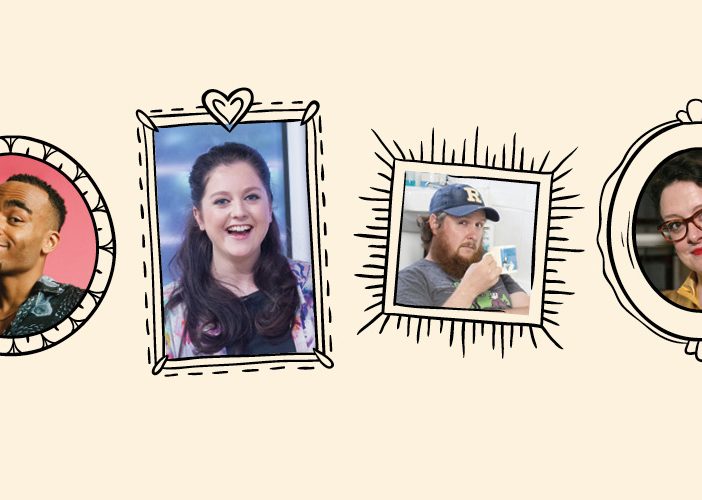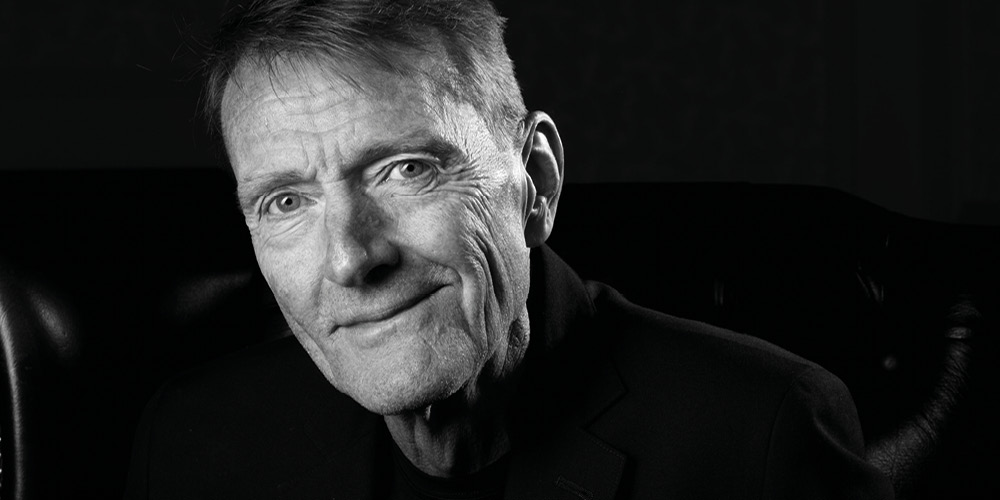
My Sheffield: Lee Child
Lee studied Law at the University of Sheffield, though he never intended to become a lawyer – learning instead for the sheer joy of it. In much the same way, he created the character Jack Reacher for himself after an acrimonious split from TV company Granada in the 90s.
Little did he know his books would reach an audience of hundreds of millions, be translated into 51 languages in 101 countries, adapted into film and now a massively successful series on Amazon.
Speaking to us from his home in New York, Lee shares his memories of Sheffield in the 1970s, how a love of the theatre led him into TV, and why Reacher will never die – thanks to the help of his younger brother and fellow Sheffield alumnus Andrew.
What do you remember of your time at university?
Things that I remember most are very hard to talk to modern day students about. Virtually nobody went to uni – about 15% of school leavers. And it was more or less exclusively white and middle class. In that sense it was really unchanged since maybe the 1950s… except that instead of wearing tweed jackets and smoking a pipe, it was bell bottoms and tie dye.
Why did you choose to study at Sheffield?
After high school I went on a long, rambling, crazy European hitchhiking adventure with some friends, all summer long. Then I rolled into my house in Birmingham late in September and there was a little pile of mail waiting for me including my A-level results. I looked at a few unis and Sheffield had a brochure that showed the Arts Tower against this brilliant blue sky and the University theatre which was a little converted church. So I thought ‘great, I’ll go there.’
What attracted you to law?
I was curious. I was ready to learn. I wanted to devour things and the law seemed to me an amalgamation of everything that I was interested in – history, politics, economics, sociology, language. The law is a snapshot of all of those things at any one time. A case decided in 1933 reflects the society and the politics and the economics of the time. So it seemed to me to be a really integrated type of education where you would learn all kinds of fascinating implications.
How has studying law shaped your view of the world?
The thing about the law is it gives you a really excellent sense of what is likely to be true and what isn’t. So, I’ve been fearless all my life: if some bureaucracy gets in the way or something like that, I take them on because I understand the principles. I definitely recommend it – even if you don’t want to be a lawyer, study the law.
Sheffield is famous for its SU and societies. How did you spend your time outside of lectures?
I thought about girlfriends, music, what gig I was gonna go see that night. Theatre group was my main thing. I had zero on-stage talent. I just couldn’t do it. Mostly I was stage manager or lighting director – something behind the scenes. I was very much a backstage person. I love the transaction of the theatre, I love that immediacy of real-time response from an audience and the feeling in that moment is just intoxicating.
You don’t really get that writing a novel, do you?
No. You absolutely don’t. I would have stayed in the theatre except it was just so difficult to make a living: pay was terrible and work was extremely insecure. And I was also convinced by Peter Brook’s book, The Empty Space, which said all the theatre needs is some actors and an empty space in which to perform. I felt backstage people were fundamentally superfluous.
Is that how you came to work in television?
I needed to find somewhere backstage people were absolutely essential. So, I thought I’ll go to television. That was one of the three jobs that I applied for – and the one I took was at Granada television in Manchester.
How did it compare to student life?
You could earn a hundred pounds a week – a big jump from my maintenance grant. And I was very happy there because it coincided with the beginning of a great era for Granada. There would be all kinds of things going on in a super chaotic way. We were just flying by the seat of our pants. It was a tiny company, it felt more like a family. Until it went wrong in the 1990s.
You’ve spoken about the sacking and how your first novel came out of this rage. Do you look back and think that they did you a favour?
I felt stabbed in the back. Being unemployed at the age of 40, with a teenage daughter and a mortgage, is a disaster. So, yeah, it was a springboard, the fury and the anger and the energy that it produced in me in order to get out of trouble obviously powered the next phase of my life. But if one of those guys were to come visit me now and say I did you a favour, I’d punch him in the face.
Did you consider working for another TV company?
At Granada I was a union shop steward and I was very effective. I was a total pain in their ass. Even though we ultimately lost the war, we won practically every battle along the way. So I was blacklisted, that much was obvious. I was never going to work in that industry again. It was good in a way. It just clarified everything for me. I had to do something different.
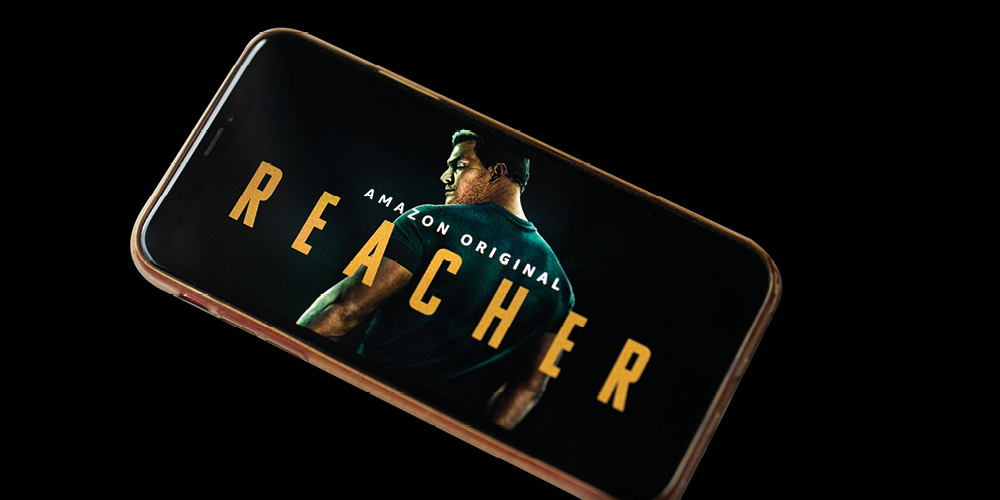
So you set out to create the ultimate avenging angel character?
I had never thought about becoming a writer. Entertainment was what I wanted to do, since I was nine and I wanted to be in the Beatles. I wanted the transaction, doing something that gave people intense joy and happiness. And to be completely honest about it, I was looking for the love and approval I didn’t get when I was growing up.
This wasn’t a conscious thing?
Right, it was an unconscious thing. What I was conscious of when I started writing was complicated because I had been a reader all my life, since I was three years old. I understood that I couldn’t plan to be a success. If you sit down and think ‘I’m unemployed, I’ve got the rest of my life to look after.
I need a successful project here,’ then you’ve lost. I had to ignore everything and just write instinctively. If you write a book that you are 100% happy with, then that book has got a beating heart of its own. Then the only question is how many other people are going to like it. And there will be hundreds… if not thousands.
If you didn’t write Jack Reacher, surely the publishing industry would have had to invent him?
Well, the truth about Jack Reacher is that he of course has been invented over and over again over the millennia. The idea of the mysterious stranger or the noble loner who shows up in the nick of time and solves a problem and then rides off into the sunset. That character has been around forever. The gunslinger of late 19th century America, which itself was just an adaptation of European myth from the Middle Ages, which was really an adaptation of Scandinavian sagas and Saxon battle poems all the way back to Greek myth really.
How much have you changed what you do based on what the market wants versus what you wanted to write yourself?
When I started, everybody else had this kind of full cast of characters. I thought alright, I’ll do something different. So Reacher has no home, has no job – there is nothing recurring, no soap opera. It’s just him in a new adventure every time. It’s satisfying in a literary sense to people who are habitual readers, and accessible to people that are not. I’ve put all my energy into preventing him from changing. The fascination of Reacher is he already knows stuff. He doesn’t need to learn. He’s a rock.
So, what will you do with your retirement? You don’t seem the daytime TV type.
When I was at primary school my grandad retired, and my mum explained that he doesn’t go to work anymore, he just stays at home and does what he wants. And I thought ‘Damn, that seems like a pretty good deal.’ I’m really just easing into it.
Lee joined fellow graduates at the USA Alumni Reunion!
Guests were treated to an exclusive interview with Lee to learn about his time at Sheffield, his Hollywood adventures and even enjoy an impromptu Jack Reacher book signing.
